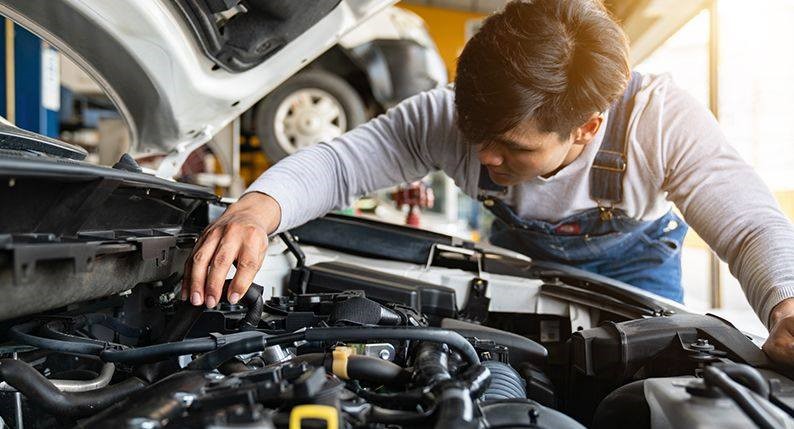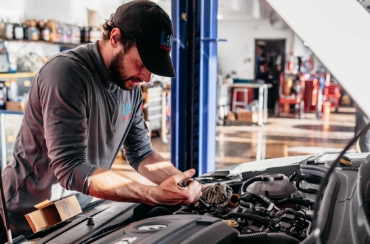All Categories
Featured
EV batteries are large, complicated, and include beneficial products, making appropriate disposal and recycling necessary. The good news is that many repair stores, in collaboration with reusing programs, now use electrical automobile battery reusing solutions.
![]()
In addition, the expanding variety of electrical automobiles when traveling has actually produced a pushing need for lasting solutions to handle battery waste. According to industry projections, millions of EV batteries will certainly require recycling in the coming years, making repair stores an essential part of this ecological community.
Manufacturer Collaborations: Brand Names like Tesla, Ford, and GM have developed recycling initiatives, and licensed repair shops associated with these manufacturers usually help with battery recycling. Third-Party Recyclers: Independent fixing shops often companion with companies concentrating on EV battery recycling, such as Redwood Products or Li-Cycle, which concentrate on extracting and recycling important products from batteries. 3. How the Process Works. When an EV battery reaches the end of its lifecycle, fixing stores take a number of actions to guarantee its appropriate recycling:
Examination: Professionals analyze whether the battery can be repurposed for other uses, such as power storage space systems. Disassembly: The battery is very carefully taken apart to divide recyclable products. Reusing Transfer: The taken down elements are sent to specialized centers where steels and other products are recuperated for reuse. This process lessens waste and takes full advantage of the worth removed from made use of batteries, sustaining a sustainable EV ecological community.
![]()
Government guidelines and rewards are also driving the growth of battery reusing infrastructure. In regions like the EU and The golden state, rigorous guidelines on battery disposal guarantee that repair work shops and suppliers take responsibility for recycling efforts.
Conclusion. Yes, repair service stores providing electric lorry battery recycling are ending up being increasingly common. These businesses play an important function in developing a lasting EV industry by making sure that utilized batteries are recycled properly.
![]()
As more repair shops embrace these practices, they not just add to environmental management yet additionally improve the lifecycle of electrical cars. For EV owners, choosing fixing shops with recycling solutions is a significant way to support sustainability while keeping their cars.
The future of EV battery recycling is appealing, with repair service federal governments, producers, and shops collaborating to resolve the difficulties and develop a greener tomorrow.
- Why Reuse EV Batteries? EV batteries are composed of products like lithium, manganese, cobalt, and nickel-- sources that are finite and energy-intensive to essence. Recycling these batteries avoids dangerous chemicals from leaking right into the environment and reduces the demand for extracting brand-new raw products. By recovering these aspects, reusing contributes to the round economic climate and decreases the carbon footprint of EV production.

In addition, the expanding variety of electrical automobiles when traveling has actually produced a pushing need for lasting solutions to handle battery waste. According to industry projections, millions of EV batteries will certainly require recycling in the coming years, making repair stores an essential part of this ecological community.
- Repair Work Shops and Battery Recycling Programs. Several forward-thinking service center are tipping up to provide EV battery reusing services. These shops typically work in collaboration with suppliers, specialized reusing centers, or government-backed programs to make sure batteries are taken care of securely and effectively.
Manufacturer Collaborations: Brand Names like Tesla, Ford, and GM have developed recycling initiatives, and licensed repair shops associated with these manufacturers usually help with battery recycling. Third-Party Recyclers: Independent fixing shops often companion with companies concentrating on EV battery recycling, such as Redwood Products or Li-Cycle, which concentrate on extracting and recycling important products from batteries. 3. How the Process Works. When an EV battery reaches the end of its lifecycle, fixing stores take a number of actions to guarantee its appropriate recycling:
Examination: Professionals analyze whether the battery can be repurposed for other uses, such as power storage space systems. Disassembly: The battery is very carefully taken apart to divide recyclable products. Reusing Transfer: The taken down elements are sent to specialized centers where steels and other products are recuperated for reuse. This process lessens waste and takes full advantage of the worth removed from made use of batteries, sustaining a sustainable EV ecological community.
- The Duty of Repair Service Shops in Promoting Sustainability. Service centers that provide battery recycling not only help in reducing environmental impact but likewise reinforce consumer trust. EV owners are much more likely to pick services that demonstrate environmental duty. Some repair service shops go an action further by providing motivations, such as price cuts on new batteries or services, to consumers who recycle their old ones.

- Difficulties and Future Expectation. While battery recycling is growing, obstacles stay. Not all service center are equipped to take care of EV batteries as a result of their complexity, safety, and size demands. Nonetheless, as modern technology developments and demand for recycling rises, even more service center are likely to adopt these solutions.
Government guidelines and rewards are also driving the growth of battery reusing infrastructure. In regions like the EU and The golden state, rigorous guidelines on battery disposal guarantee that repair work shops and suppliers take responsibility for recycling efforts.
Conclusion. Yes, repair service stores providing electric lorry battery recycling are ending up being increasingly common. These businesses play an important function in developing a lasting EV industry by making sure that utilized batteries are recycled properly.

As more repair shops embrace these practices, they not just add to environmental management yet additionally improve the lifecycle of electrical cars. For EV owners, choosing fixing shops with recycling solutions is a significant way to support sustainability while keeping their cars.
The future of EV battery recycling is appealing, with repair service federal governments, producers, and shops collaborating to resolve the difficulties and develop a greener tomorrow.
Latest Posts
Untitled
Published Apr 15, 25
0 min read
Laminate Floor Covering: Design Meets Resilience at Carpet Interiors Floor & Home
Published Apr 15, 25
1 min read
Full Circle Strategic Marketing - Rule SERPs with Powerful Search Engine Strategies
Published Apr 15, 25
2 min read